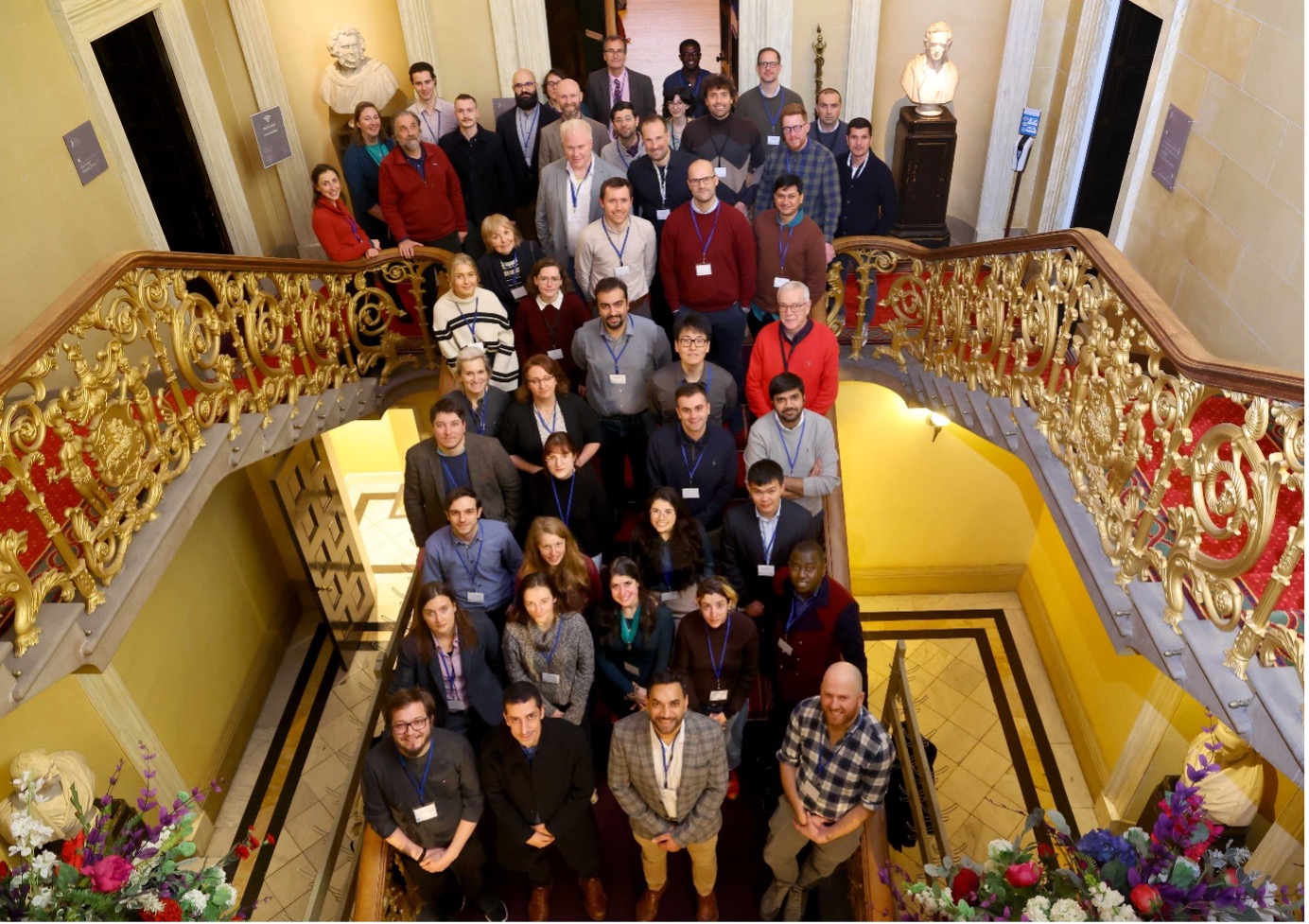On the 4th December, over 60 representatives from industry and academia gathered at The Royal College of Physicians in Edinburgh for SCCS’ second PhD Consortium event. The aim of this knowledge-sharing event was to discuss and gather feedback on the latest research into carbon capture and related topics by PhD students and early career researchers at SCCS partner institutes. Click here to see full event details and presentation slides.
Participants were welcomed by Richard L Stevenson, Project & Research Analyst at SCCS, and Professor Eric Mackay, Energi Simulation Chair in CCUS and Reactive Flow Simulation at Heriot-Watt University, who emphasised the importance of knowledge exchange to drive research that meets industry needs and accelerate efforts to mitigate climate change.
The Industry keynote was delivered by Daniel Mullen, Low Carbon Technologies Engineer at SSE. He exemplifies the opportunities the SCCS’ PhD Consortium offers: he met his current boss at last year’s event where he presented his PhD research.
At SSE, Mullen is working to deliver the company’s transition to Net Zero, which includes exploring ways to improve the cost-effectiveness of CCS. He presented findings from a DESNZ-funded project that SSE Thermal is carrying out in partnership with the University of Sheffield’s Translational Energy Research Centre and AECOM consultancy to improve the efficacy of carbon capture during thermal plant start-up and shutdown using solvent storage.
Over the course of the day, PhD students and early career researchers presented talks and posters on work spanning the CCUS chain. Topics covered included enzyme-induced carbonate precipitation, which could be used to enhance the storage efficiency of repurposed oil and gas wells and to make carbon negative construction materials; enhanced rock weathering of basalt rock dust as a way of removing atmospheric CO2 and reducing emissions from the mining and quarrying industry; and advances in mapping the structure of and modelling CO2 containment in offshore subsurface storage sites.


At the end of the day, there was an opportunity to pitch ideas to the room. Some researchers presented new strands of work that they would be interested in pursuing, such as producing carbon negative ethylene from air and using silicate sponges to extract cobalt and nickel from waste for re-use as a catalyst for hydrogen production. Attendees were also able to hear about developments in the UK’s national CO2storage database (CO2Stored) and the MOET (Managing the Offshore Energy Transition) project that BGS is leading; the Net Zero Technology Centre’s Infrastructure Project and CCSA’s working groups, which are contributing to accelerate the commercial deployment of CCUS.
"It was an excellent day with lots of discussion between researchers and industry on the latest developments in CCS and related technologies, which we look forward to following up on.", said Richard L Stevenson, Project & Research Analyst at SCCS.
“The event was very successful, with knowledge exchange through PhD posters presentations and talks by researchers from each of the five SCCS member institutions. Also very insightful was the industry input, and the short proposal pitches by various researchers. The outcomes of the day will be research that is more focused on industry needs, greater mindfulness by PhD students on how their research will be used, and for all a greater awareness of the wide breadth of research being undertaken within SCCS and the opportunities that creates.”, said Prof. Eric Mackay, Energi Simulation Chair in CCUS and Reactive Flow Simulation at Heriot-Watt University.


